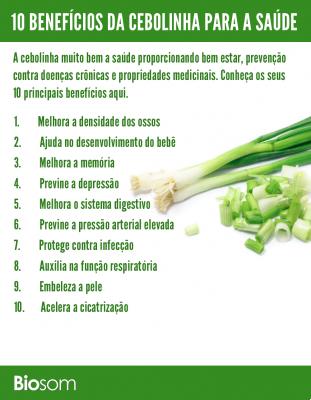
Spring onion: what it is
Il onion it is part of the vegetables of the allium family, including garlic, and shares nutritional and beneficial properties with them.
The spring onion is the immature bulb, caught before the bulb that we know well is formed. The flavor of spring onions depends on the type of onion from which they are made, if that is from white onion or red onion: the first is the most widespread and has a pungent flavor, while the second is sweeter and more delicate.
The spring onions are present all year round grown in greenhouses, but the natural season to find them fresh is the beginning of spring.
Spring onion both the leaves, richer in vitamins, and the small bulb deprived of the beard are consumed, rich in minerals and enzymes.
There are numerous recipes that use it instead of onion and garlic, since the flavor is less intense, but to take full advantage of its properties it is necessary like it raw.
Le leaves they must be soft and fleshy, not stiff and dry, and bulbs with a slightly larger diameter than the stem and a light color. It can consume raw in pinzimonio, or in green salads, as well as in those of cereals and pasta, in savory pies and farinata, while cooked is a tasty and healthy ingredient of warming soups for the winter.
Famous is the spring onion from Nocerino, DOP product of Campania.
Read also The spring onion in the recipe of the wholemeal kamut salad >>
The spring onion in folk medicine
Il onion, Together with onion and all 'garlic, has long been used over the years as an ingredient in folk medicine. Antibiotic and antibacterial, it is used as an extract and juice, as a syrup, and as a food, serving as a supplement and natural medicine.
Le beneficial properties of spring onions are numerous:
> are diuretics: the high water content of the spring onions allows to eliminate, through the urine, excess liquids;
> act like decongestants and emollients: like onion juice, also spring onion, added to honey, is a very useful folk remedy in case of mucus and inflammation of the upper respiratory tract, therefore in case of cough, bronchitis, cold and sore throat;
> are purifying: the sulphurates of which they are rich allow to eliminate nitrites and nitratesproducts from the body in case of intoxication and responsible for cellular aging;
> constitute a profit antibacterial natural of the urinary tract: the presence of sulfur in spring onions, associated with its diuretic power, allows the excretion, together with the urine, of the bacteria that are responsible for urinary tract infections;
> affect the levels of glycemia in the blood: it is suitable for those suffering from hyperglycemia and diabetics;
> are useful for the health of the heart and circulatory system: sulfur compounds act on the concentration of cholesterol in the blood, on vascular elasticity, and the sulfur and potassium contained in the spring onion contribute to the proper functioning of the heart muscle;
> stimulate the good mood: the spring onion contains folate, able, among other things, to reduce stress, improve the quality of sleep and act as natural antidepressant;
> contribute to well-being of bones and teeth: this function is possible thanks to the presence of phosphorus in the spring onions;
> stimulates the digestion: thanks to the presence of digestive enzymes, especially if consumed raw;
> antitumor: like all vegetables of the allium family were made scientific studies that have highlighted its anticancer properties, especially at the level of the pancreas, stomach, intestine; the antitumor function is performed by sulfur compounds capable of reducing the carcinogenic effect of aromatic hydrocarbons.
Read also 5 foods for a good mood >>


























